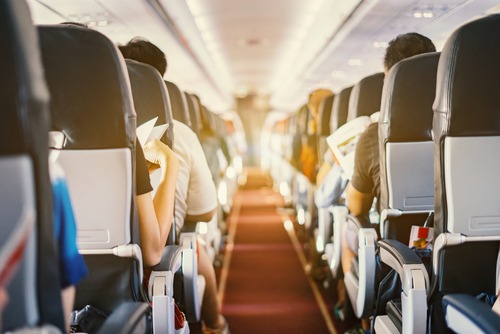Conundrum Close-up: Is it Fair to Ask Staff to Travel on Budget Airlines?
“Opportunity for extensive travel.” These words on a job description will make some job hunters salivate, and set others running for the hills. Travel, whether luxury or budget, means long hours away from home, and there isn’t always enough time to fit in a spot of sight-seeing. Budget airlines, once restricted to the European market, have now reached out across the Atlantic, and businesses everywhere are joining consumers in seeking out the lowest possible fares.
A survey for Expedia in 2016 found that 40% of business travellers were extending their business trips in order to fit in leisure time. The survey identified a new crossover travel segment, appropriately termed ‘Bleisure.’
This would suggest that a large proportion of employers do enjoy being sent away for work. But it’s still not fair to assume that this is the case for everyone – particularly new parents or others with caring responsibilities.
Where are you Going?
If your employees are just going on the odd trip to a European capital that’s no more than 2 or so hours away, it’s probably fair to expect them to travel on one of the budget airlines. Just to be fair, however, it’s a good idea to pay for them to have at least one suitcase if that’s what they’d like to do, plus of course a per diem for refreshments on the plane.
What Time do you Call this?
One of the problems with budget airlines is that flights often go at inconvenient or red-eye times. Expecting your employees to get up at 4am just to make it to a 7am flight in some far-flung airport could do more than annoy them. The sleep deprivation might put them in a sour mood and actually impair their performance on the job. Take a look at this article about the real impact of sleep deprivation in the workplace, to find out why shelling out a bit extra for a flight at a more civilised time is actually money well spent.
When Travel Becomes a Habit
If your employees regularly travel on overnights for the business, it might be worth steering clear of the budget airlines, and opting for a more respected company. In a sense, giving them the comfort of good leg room, and airports close to town, is a vital part of making sure they feel valued, and arrive feeling refreshed.
And, even though you might not think that business class is worth it for European travel, your employees might be grateful for the use of lounges and other comforts offered by the higher ticket price. If they’re really travelling frequently, you (or they) will earn points that you can put towards tickets in the future.
Whoa, that’s Far!
With budget airlines like Norwegian offering flights from London to New York City for only £150, business might be tempted to cut corners when sending their employees on transatlantic business. Even for one-off trips, however, it’s likely that your request for employees to travel on a budget airline across the pond might be met with much gratitude at all.
If you value your employees’ contributions so much that you’re willing to send them to another continent to carry out their work, it’s definitely worth going that little further, and paying for a ‘normal’ airline.
A report by travel industry intelligence platform, Skift, found that nearly all Virgin Atlantic customers looked forward to business travel. The question is, do you want your employees to go to work looking forward to it, or dreading it?
When the CEO Travels on Budget Airlines
Everything we’ve discussed so far changes when it comes to startups or other non-hierarchical companies, provided that senior staff join in a company-wide commitment to travelling on budget airlines. Even where travel is frequent, your employees are more likely to accept roughing it on budget airlines if you (or the founder) are right next to them in the trenches.
The key thing with getting your employees on board with any radical cost-saving measure, including budget airline travel, is to make sure that they understand the reasons for the economising, and that they feel they have a stake – and a role to play – in the company’s future success.
Whatever the case, it’s important to balance employee performance (after a long, cramped flight) with the cost-saving you make by buying budget airline tickets.
About-Turn!
Lastly, it’s important to remember that when you send your staff abroad on budget airlines, you’re unlikely to get the same flexibility that you might enjoy if you use a ‘bluechip’ airline. Sometimes this might be a risk worth taking, if you think you can stomach the loss of an unused, nonrefundable ticket. But occasionally, you could actually lose out quite seriously, for example, if an employee misses a flight because of unforeseen transport problems, you’ll have no choice but to shell out for what could be quite an expensive ticket, just to get them home.
Consider all the Factors, then Make your Move
Having considered the various decision-making factors outlined above, you’ll now have to face the one reality that only you know about – your company’s own T&E budget. Every business is different and you’re the expert in yours.
If you do decide to go the budget airline route, first shop around using a tool like Skyscanner or Momondo – you might be surprised at what you can afford.
Whatever choice you make, be sure to help your employees understand the reasons for it. A happy employee is a productive employee, and that’s going to have a real impact on your ROI. It’s easy for resentment to build, and that’s the last thing you want. Sometimes, as the old saying goes, you just can’t afford to buy cheap.
Wherever you go, take Soldo with you and enjoy low FX fees, multi-currency functionality, enhanced security and easy controls.
Find out more here.







